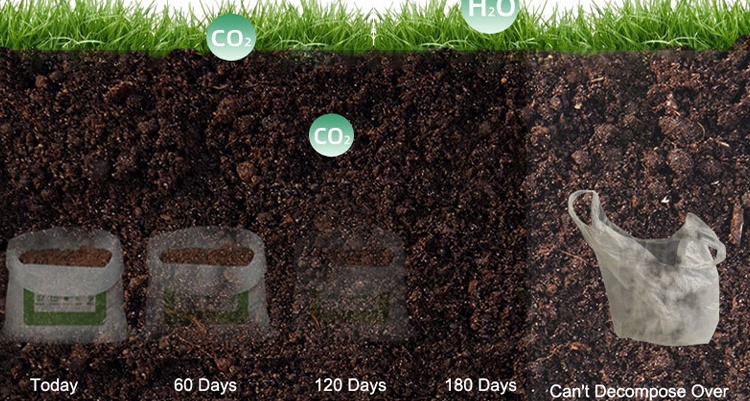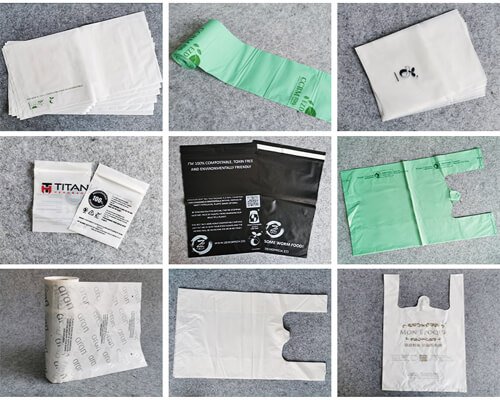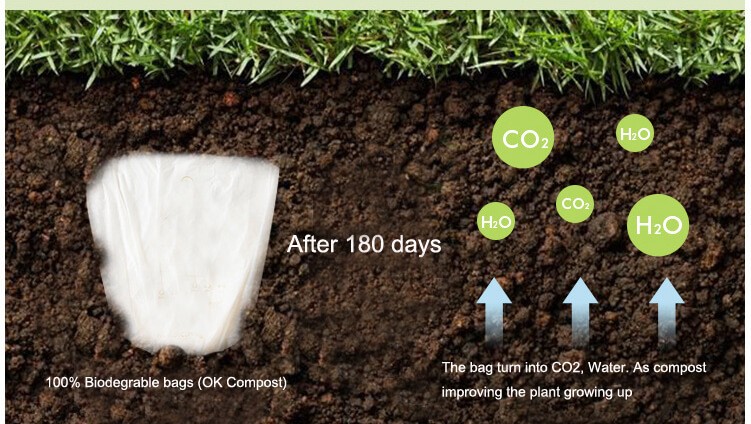What Are The Best Compostable Bag

They stress, for example, that compostable bags must be certified as biodegradable from the outset and that the scenario of industrial composting of these bags has not been tested. The researchers at the University of Plymouth point out that a study by researchers from the university, which was intended to provide insights into the environmental degradation of plastic bags of different types of polymer, has been reviewed by experts to achieve the purpose of its design, but the Organisation for European Bioplastics argues that the conclusions are misleading. Biodegradable materials, in particular oxo-biodegradable conventional plastic formulations, can remain functional as carrier bags in soil and marine environments for up to three years.
The following bags and brands are acceptable to throw into your food and garden waste bins. Logos identifying compostable bags are only accepted in Seattle’s food and recycling bin. Bags labelled “biodegradable” break down into small pieces and are not compostable.
Make compostable bags with logo
Compostable product bags are loved by customers at farmers markets, cooperatives and health food stores. Environmentally friendly plastic bags are good for the environment. Compostable bags are available at Costco, Whole Foods, Mollie Stone, CVS, Walgreens and other stores.
Compostable garbage bags are an indispensable waste diversion product for your home or business. Compostable bags are made from plant-based materials that can be broken down and composted. The use of compostable bags is optional, but facilitates the collection of food waste.
Biodegradable plastic bags cannot be recycled like other plastic items. Compostable garbage bags become compost over time when exposed to moisture, oxygen and bacteria. Developments in composition, design and technology improve the strength and degradability of compostable bags for everything from kitchen and garden waste to your dogs, but you don’t want to use the last variety for your edible compost garden.

How do compostable bags work?
New technologies are strengthening biobags, including advances in new, durable varieties of compostable resins, the temperature at which bags are sealed, and the design of bags, says Wagner. The biodegradability of plastics is defined in the EU directive on single-use plastic products, which is coupled to standard 134.32 for industrial composting. The EU Plastics Strategy 2018 recognises that industrially compostable products have value in the sorting and collection of bio-waste, also to facilitate organic recycling and composting.
Ecosafe (r) is a biodegradable garbage bag that decays in commercial composting plants within 90 days. Heavy compostable bags for garden waste and garbage can be composted in 100 days in a well-maintained composting plant. This formula provides an environmentally friendly and sustainable product for petroleum plastic bags.
Do compostable bags break down?
ACC (American Chemistry Council) is a large-scale composting plant if you want to break down biodegradable materials. The 80 million tonnes of waste that end up in landfills each year, according to US Environmental Protection Agency figures, is material that can be converted into compost under the right conditions, including food scraps, garden waste and non-recyclable paper. They regulate them, they say where they can go and they find legitimate disposal routes.
These decompose into tiny pieces of plastic over thousands of years. This process causes the bag to dissolve into smaller microplastics, raising fears that these bags are contributing to the growing accumulation of microplastics in the world’s oceans.

Thompson and his team tested five types of bags, including a compostable bag, a conventional high-density polyethylene bag and three types of biodegradable bags. The other biodegradable bags were manufactured to encourage their degradation.
Biobags is not the largest company for mineral oil-based plastic bags, but is involved in the new business with compostable bags. Biobags strongly recommends refraining from composting.
At this point, you probably are aware of the environmental impact of the plastic bags you grab in the grocery store or takeout restaurant in single-use plastic bags. But we often don’t include plastic bags in the conversation because they are disposable and have the same kind of environmental impact.
If replacing your plastic bags seems daunting, switching to a biodegradable or compostable garbage bag is a simple swap that minimizes the waste needed by plastic products. Our compostable dog excrement bags are even more environmentally friendly than throwing compost in the trash. Your mother will never tell you, but forgive her if she knows nothing about biodegradable garbage bags and the environment, friends.
Search for a BPI (Certified Biodegradable Products Institute) designation to ensure that your compostable garbage bag does exactly what it claims to do and that compostable materials such as lettuce, coffee grinders, nut shells, garden waste and leaves can be composted. The most environmentally friendly products are compostable bags that are composted from organic waste in municipal composting plants. Our biodegradable dog feces are durable and robust enough to get the job done.
In other words, one should not simply throw biodegradable garbage bags into the compost heap without thinking about how they decompose. The decomposition of leftover food and garden waste in an obsolete backyard compost bin is acceptable for many people, but putting leftover food in bags in the kitchen and leaving it there for a few days creates an important factor for those who set limits to how organic they want to be. Not all municipal or separate organic collection systems and not all SSO systems accept food waste for composting, Wagner says.
By composting, you can easily turn your kitchen waste and parts into nutrient-rich feed. Potato starch has a higher content of amylopectin than corn or wheat starch. Compostable carbohydrates are strong and versatile.
